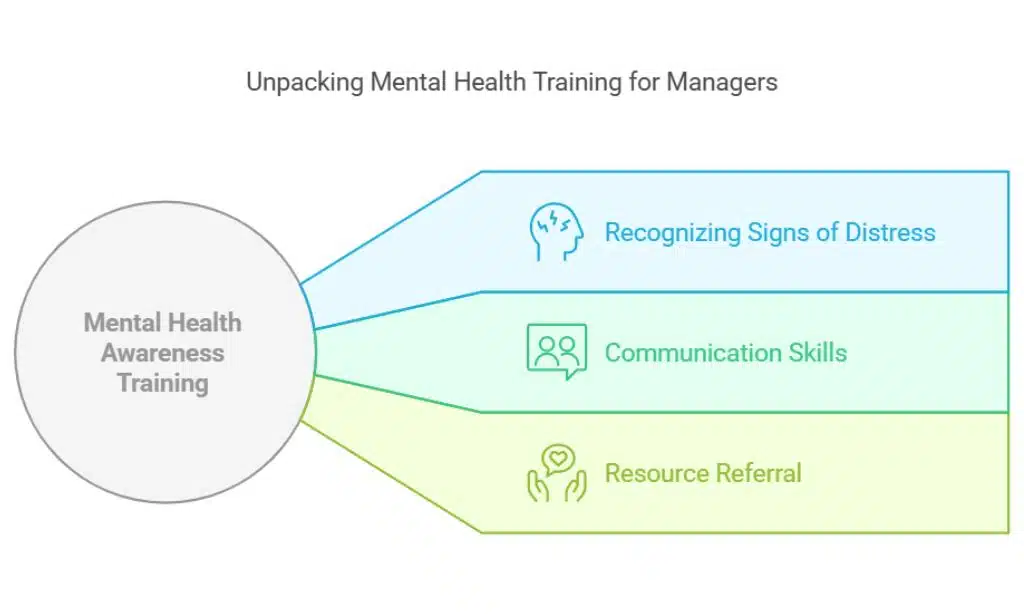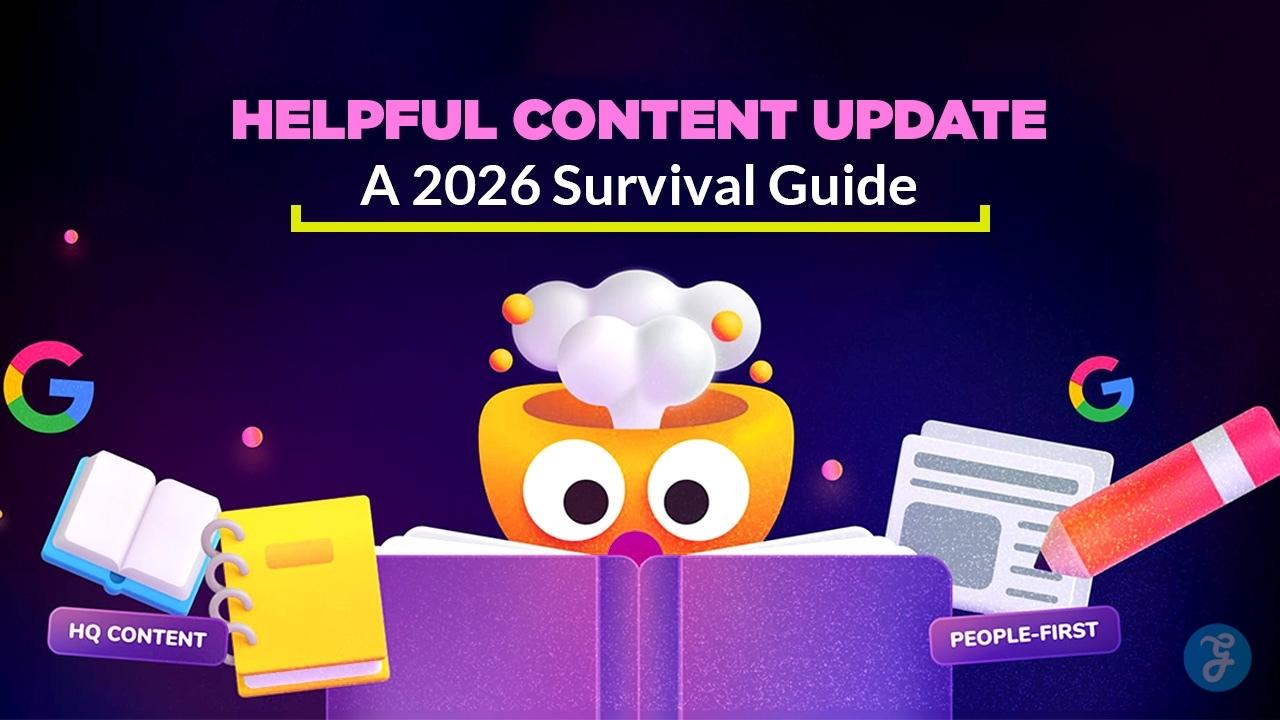In today’s fast-paced corporate world, the importance of mental health in the workplace has never been greater. Employees face mounting pressures from tight deadlines, high expectations, and the demands of balancing work and personal life.
Companies that recognize the value of investing in their workforce’s mental health are reaping the benefits of improved productivity, lower turnover rates, and a more engaged team.
This article explores 10 corporate initiatives for employee mental health that organizations can adopt to foster a healthier, more supportive work environment. By focusing on corporate initiatives for employee mental health, companies can lead the way in creating thriving workplaces.
Why Mental Health Matters in the Workplace
The Impact of Mental Health on Employee Productivity
Mental health directly influences productivity. According to a study by the World Health Organization (WHO), depression and anxiety cost the global economy an estimated $1 trillion annually in lost productivity. Employees struggling with mental health challenges may experience difficulty focusing, decreased efficiency, and higher absenteeism rates.
By addressing mental health proactively, companies can enhance overall workplace performance and employee satisfaction. Emphasizing corporate initiatives for employee mental health not only aids individuals but also contributes to organizational success.
Data Snapshot: Global Productivity Loss
| Metric | Value |
| Annual Economic Cost | $1 Trillion |
| Common Causes | Depression, Anxiety |
| Potential Savings with Action | Up to 20% Improved Productivity |
The Role of Employers in Supporting Mental Wellness
Employers play a crucial role in supporting mental wellness. Beyond legal and ethical responsibilities, providing mental health resources leads to a positive company culture, improved morale, and stronger team cohesion. Companies that prioritize mental health demonstrate a commitment to their employees’ well-being, fostering loyalty and trust. Implementing corporate initiatives for employee mental health ensures that organizations address this crucial need.
Employer Actions for Mental Wellness
| Action | Outcome |
| Providing Mental Health Resources | Builds trust and reduces stigma |
| Encouraging Open Dialogue | Enhances team cohesion and understanding |
| Promoting Work-Life Balance | Reduces stress and prevents burnout |
Top 10 Corporate Initiatives That Prioritize Employee Mental Health
1. Flexible Work Schedules
Flexible work schedules allow employees to manage their time effectively, reducing stress and preventing burnout. Options such as remote work, flextime, or compressed workweeks enable individuals to align work with personal responsibilities, enhancing overall job satisfaction. For example, Google and Microsoft have successfully implemented flexible schedules, leading to higher employee engagement and reduced turnover. These corporate initiatives for employee mental health are key to modern workplace adaptability.
Benefits of Flexible Work Schedules
| Key Benefits | Description |
| Reduced Stress | Enables better work-life balance |
| Increased Productivity | Aligns work hours with peak performance times |
| Enhanced Job Satisfaction | Empowers employees to manage their schedules |
Practical Tip
Encourage team leaders to adopt “no-meeting days” or “core hours” to provide employees with uninterrupted time for deep work.
2. Mental Health Days
Mental health days provide employees with much-needed time off to recharge and address personal well-being. These days help reduce burnout, increase morale, and demonstrate a company’s commitment to holistic health. Policies for mental health days should be clear and widely communicated to encourage utilization. This simple yet effective addition to corporate initiatives for employee mental health can transform workplace dynamics.
Implementing Mental Health Days Effectively
| Strategy | Details |
| Clear Communication | Inform employees about available resources |
| Supportive Culture | Normalize taking mental health days |
| Inclusive Policies | Ensure all employees feel comfortable using them |
Case Study: HubSpot
HubSpot’s “Unplugged Week” allows employees to take a week off without meetings, emails, or project deadlines, promoting mental recovery and work-life balance.
3. Employee Assistance Programs (EAPs)
EAPs provide employees with access to resources like confidential counseling, legal guidance, and financial advice. These programs address various personal and professional challenges, ensuring comprehensive support. Companies like Johnson & Johnson offer robust EAPs that are accessible 24/7, helping employees feel supported during difficult times. Among corporate initiatives for employee mental health, EAPs stand out for their comprehensive reach.
Key Components of EAPs
| Component | Benefits |
| Counseling Services | Emotional and psychological support |
| Financial Advice | Assistance with managing financial stress |
| Legal Resources | Guidance on legal matters |
Pro Tip
Integrate EAP awareness into onboarding sessions and internal newsletters to maximize usage.
4. On-Site or Virtual Counseling Services
On-site or virtual counseling services provide easy access to mental health support. On-site counselors can address workplace stressors immediately, while virtual options cater to remote employees. EY (Ernst & Young) has successfully partnered with counseling providers to deliver global mental health solutions. As a key part of corporate initiatives for employee mental health, counseling services ensure accessibility.
Comparison of Counseling Services
| Type | Benefits |
| On-Site Counseling | Immediate support for in-office employees |
| Virtual Counseling | Flexible access for remote or global teams |
Example: Telehealth Integration
A 2023 survey revealed that 80% of employees prefer virtual counseling options for their flexibility and anonymity.
5. Mindfulness and Meditation Programs
Mindfulness practices like meditation and breathing exercises help reduce stress and improve focus. Companies like Salesforce integrate mindfulness by offering meditation rooms and guided sessions, creating an environment conducive to relaxation and productivity. These corporate initiatives for employee mental health can significantly enhance emotional resilience.
Benefits of Mindfulness Programs
| Benefit | Impact |
| Reduced Stress | Improves emotional resilience |
| Enhanced Focus | Boosts task efficiency and concentration |
| Better Emotional Regulation | Promotes healthier workplace interactions |
Quick Start
Introduce 5-minute guided breathing exercises at the start of meetings to foster a calm and focused atmosphere.
6. Mental Health Awareness Training for Managers
Training managers in mental health awareness equips them to identify signs of distress, provide initial support, and connect employees with professional resources. Mental Health First Aid training, adopted by many organizations, has proven effective in building supportive leadership. Managers trained in corporate initiatives for employee mental health act as the first line of support.
Topics Covered in Training
| Topic | Relevance |
| Recognizing Signs of Distress | Early intervention and support |
| Communication Skills | Handling sensitive conversations |
| Resource Referral | Directing employees to appropriate help |
Real-Life Insight
A manager trained in mental health first aid reported a 25% reduction in team conflicts after implementing learned skills.
7. Peer Support Networks
Peer support networks foster a sense of belonging by enabling employees to connect, share experiences, and support one another. Employee resource groups (ERGs) for mental health create a safe space for dialogue and understanding. Establishing these networks is a cornerstone of corporate initiatives for employee mental health.
Steps to Establish Peer Support Networks
| Step | Description |
| Identify Champions | Select leaders to spearhead initiatives |
| Create Safe Spaces | Encourage open, judgment-free dialogue |
| Promote Participation | Regularly communicate group activities |
Highlight: LinkedIn’s ERGs
LinkedIn’s “Mind Matters” ERG has improved employee satisfaction scores by fostering open discussions on mental health.
8. Financial Wellness Programs
Financial stress is a common cause of mental health challenges. Programs offering budgeting tools, debt management advice, and financial education workshops can alleviate this stress. PwC’s financial wellness initiatives have significantly improved employee satisfaction and reduced stress levels. By addressing financial concerns, corporate initiatives for employee mental health deliver holistic solutions.
Key Features of Financial Wellness Programs
| Feature | Benefit |
| Budgeting Tools | Simplifies financial planning |
| Educational Workshops | Builds financial literacy |
| Debt Management Resources | Provides solutions for financial challenges |
Additional Insight
Offer mobile apps like Mint or YNAB to employees for easy financial tracking and planning.
9. Physical Wellness Initiatives
Physical health and mental health are interconnected. Initiatives like gym memberships, yoga sessions, and walking meetings encourage physical activity, positively impacting overall well-being. Nike’s emphasis on fitness and wellness creates a culture of health within the organization. Integrating physical wellness with corporate initiatives for employee mental health creates a holistic approach.
Examples of Physical Wellness Initiatives
| Initiative | Benefit |
| Gym Memberships | Encourages regular exercise |
| Yoga Sessions | Reduces stress and promotes relaxation |
| Walking Meetings | Combines productivity with physical activity |
Trend Alert
Companies offering hybrid work options are increasingly pairing these with virtual fitness classes to reach all employees.
10. Open Communication Policies
Transparent communication policies reduce stigma and encourage open dialogue about mental health. Regular check-ins, anonymous feedback channels, and empathetic leadership foster a supportive workplace culture. Establishing open communication is foundational to corporate initiatives for employee mental health.
Tools for Open Communication
| Tool | Purpose |
| Regular Check-Ins | Monitors employee well-being |
| Feedback Channels | Provides anonymous reporting options |
| Empathy Training | Develops supportive leadership behaviors |
Tip for Success
Host monthly mental health forums where employees can discuss challenges and solutions openly.
Strategies for Implementing Mental Health Initiatives
Conducting Employee Surveys and Assessments
To tailor mental health initiatives effectively, companies should start by understanding employee needs through surveys and assessments. Tools like anonymous pulse surveys provide valuable insights into workplace well-being and areas for improvement. These tools are essential for shaping corporate initiatives for employee mental health that resonate with the workforce.
Securing Leadership Buy-In
Gaining leadership support is critical for the success of mental health programs. Presenting data on the benefits of corporate initiatives for employee mental health, such as improved ROI and reduced turnover, can help secure buy-in from decision-makers.
Measuring Success and ROI
Measuring the success of mental health initiatives ensures continuous improvement. Key metrics include employee engagement scores, absenteeism rates, and feedback from participants. Regularly reviewing these metrics helps refine programs and maximize their impact.
Takeaways
Prioritizing mental health in the workplace is no longer optional; it’s essential for fostering a thriving organization. The 10 corporate initiatives for employee mental health outlined in this article provide actionable strategies to create a supportive, productive, and resilient workforce.
By implementing these initiatives, companies can demonstrate their commitment to employee well-being and set the foundation for long-term success. Now is the time to take the first step toward a healthier workplace—because a happy, healthy team is the key to any organization’s growth and sustainability.







































